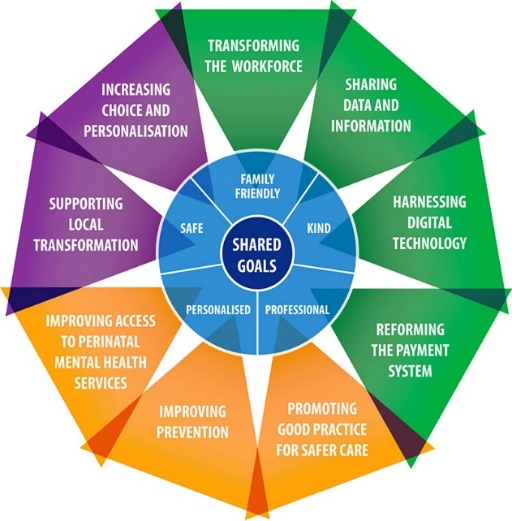Maternity Transformation in England
An overview of how maternity services in England are developing to become safer, more personal and kinder for the women and families using them
In February 2016, NHS England published the policy document Better Births, which set out a vision of how English NHS maternity services should develop to become safer, more personal and kinder for the women and families using them. The Royal College of Midwives was a significant contributor to the review on behalf of its members.
In response to the review, NHS England established a Maternity Transformation Board (MTB) to oversee the delivery of the policy and the 28 key recommendations that it made via the Maternity Transformation Programme.
RCM Chief Executive Gill Walton sits on this board to represent the views of RCM members and to offer support and challenge to the programme. You can read her latest blog here.
The Maternity Transformation Board has recognised that for the Better Births vision to become reality there is a need for local leadership and action, and has asked areas of the country to come together to form Local Maternity Systems (LMS) to achieve this.
Local Maternity Systems are there to bring together all the people who are involved in providing and organising maternity care such as; midwives, obstetricians, service users, neonatal staff, managers, commissioners, public health, educators, perinatal mental health providers and GPs.
LMS are being asked to measure their progress on reducing stillbirth, neonatal death, maternal death and brain injuries, promoting choice, continuity of carer, increasing births in midwifery-led settings and ensuring women have personalised care plans. These are called Key Lines of Enquiry (KLOE).
Maternity transformation and the RCM
The RCM has been working alongside NHS England as it has developed the vision and programme since the beginning. We have been:
- Promoting the views of our members within the work of the programme, such as recognising the need for more midwives, and resources to successfully implement the changes
- Influencing the work of the programme to ensure it represents positive work for the college and its members, such as the work on the Midwifery Support Worker framework
- Supporting our staff who are implementing the programme, such as providing guidance and teaching packages on continuity of care


